page
Beyond Despair: Presenters
Confirmed presenters at Beyond Despair include scholars, teachers, students, scientists, community leaders, activists, and artists in an effort to build bridges between the global and the local. The list of presenters is impressive and speaks to the timeliness and importance of this discussion.
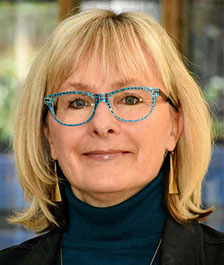 Joni Adamson is professor of environmental humanities in the department of English and Senior Sustainability Scholar at the Julie Ann Wrigley Global Institute of Sustainability at Arizona State University. She has written extensively on indigenous perspectives on environmental justice and cosmopolitics, citizenship and the commons, material ecocriticism, food justice, the arts of futurity, critical plant studies, and the eco-digital humanities.
Joni Adamson is professor of environmental humanities in the department of English and Senior Sustainability Scholar at the Julie Ann Wrigley Global Institute of Sustainability at Arizona State University. She has written extensively on indigenous perspectives on environmental justice and cosmopolitics, citizenship and the commons, material ecocriticism, food justice, the arts of futurity, critical plant studies, and the eco-digital humanities. Brooke Andrade is director of the library at the National Humanities Center. Prior to coming to the Center, she worked at the Documenting the American South digital archive and as head of reference and instruction at Adams State University.
Brooke Andrade is director of the library at the National Humanities Center. Prior to coming to the Center, she worked at the Documenting the American South digital archive and as head of reference and instruction at Adams State University.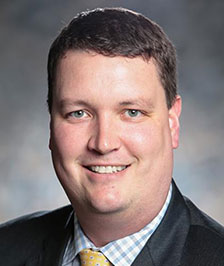 Justin Baker is a senior economist at RTI International with extensive experience in applied economic research and policy analysis, particularly the development and application of economic models that capture feedback loops between markets, natural resource systems, policy drivers, and environmental change.
Justin Baker is a senior economist at RTI International with extensive experience in applied economic research and policy analysis, particularly the development and application of economic models that capture feedback loops between markets, natural resource systems, policy drivers, and environmental change.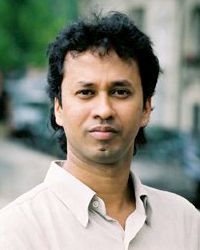 Subhankar Banerjee is an internationally recognized photographer, educator and activist whose images of the Arctic National Wildlife Refuge and other Alaskan wild lands have been exhibited in over fifty museums around the world. A leading voice on issues of Arctic conservation, indigenous human rights, resource wars, and climate change, he is professor of art and ecology at the University of New Mexico, Lannan Foundation Endowed Chair of Land Arts of the American West and director of the Land Arts Mobile Research Center.
Subhankar Banerjee is an internationally recognized photographer, educator and activist whose images of the Arctic National Wildlife Refuge and other Alaskan wild lands have been exhibited in over fifty museums around the world. A leading voice on issues of Arctic conservation, indigenous human rights, resource wars, and climate change, he is professor of art and ecology at the University of New Mexico, Lannan Foundation Endowed Chair of Land Arts of the American West and director of the Land Arts Mobile Research Center. Matthew Booker is associate professor of history and a University Faculty Scholar at North Carolina State University where his work examines the intersection between humans and the natural world in North America, with a particular focus on coastal cities. A Fellow at the National Humanities Center in 2016–17, his project examined urban food production within cities during the late nineteenth and early twentieth centuries.
Matthew Booker is associate professor of history and a University Faculty Scholar at North Carolina State University where his work examines the intersection between humans and the natural world in North America, with a particular focus on coastal cities. A Fellow at the National Humanities Center in 2016–17, his project examined urban food production within cities during the late nineteenth and early twentieth centuries.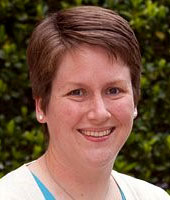 Robin Bulleri is a National Board Certified teacher of Biology and AP Biology at Carrboro High School. She is a past Kenan Fellow, North Carolina Science Leadership Fellow, and science department chair.
Robin Bulleri is a National Board Certified teacher of Biology and AP Biology at Carrboro High School. She is a past Kenan Fellow, North Carolina Science Leadership Fellow, and science department chair.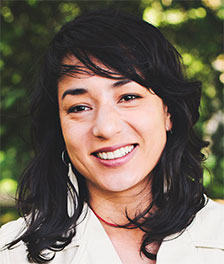 Saskia Cornes is the farm and program manager at the Duke Campus Farm and has previously designed experiential curricula in critical food studies for Columbia University, the University of San Francisco, UC Santa Cruz and Hostos Community College. Cornes recently completed a doctoral dissertation in English literature, on the culture of agriculture, at Columbia University, where she was a Mellon INCITE Fellow.
Saskia Cornes is the farm and program manager at the Duke Campus Farm and has previously designed experiential curricula in critical food studies for Columbia University, the University of San Francisco, UC Santa Cruz and Hostos Community College. Cornes recently completed a doctoral dissertation in English literature, on the culture of agriculture, at Columbia University, where she was a Mellon INCITE Fellow.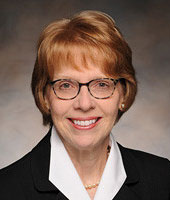 Marion Deerhake is a commissioner on the North Carolina Environmental Management Commission and has also spent more than thirty years as an environmental research scientist at RTI International. Her environmental regulatory experience covers areas such as air quality, water and groundwater quality, concentrated animal feeding operations, and hazardous waste management. She is also a past member of the North Carolina Climate Action Planning Advisory Group.
Marion Deerhake is a commissioner on the North Carolina Environmental Management Commission and has also spent more than thirty years as an environmental research scientist at RTI International. Her environmental regulatory experience covers areas such as air quality, water and groundwater quality, concentrated animal feeding operations, and hazardous waste management. She is also a past member of the North Carolina Climate Action Planning Advisory Group.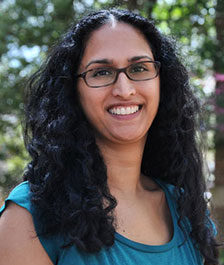 Sangeeta Desai is an information specialist currently working as part of the Metadata and Content Management team at the National Humanities Center. She received a PhD in Languages and Literatures of Asia from the University of Wisconsin-Madison and recently completed an MSIS from the School of Information and Library Science at the University of North Carolina at Chapel Hill. In 2017, Sangeeta led efforts in the Research Triangle region to preserve climate change data from EPA websites as part of the nationwide DataRescue initiative to preserve government research archives.
Sangeeta Desai is an information specialist currently working as part of the Metadata and Content Management team at the National Humanities Center. She received a PhD in Languages and Literatures of Asia from the University of Wisconsin-Madison and recently completed an MSIS from the School of Information and Library Science at the University of North Carolina at Chapel Hill. In 2017, Sangeeta led efforts in the Research Triangle region to preserve climate change data from EPA websites as part of the nationwide DataRescue initiative to preserve government research archives.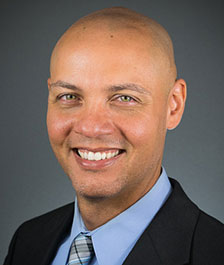 Ryan Emanuel is associate professor and University Faculty Scholar in the Department of Forestry and Environmental Resources at North Carolina State University where his research focuses on ecohydrology, watershed hydrology, watershed biogeochemistry, secondary ecosystem succession, land-atmosphere interaction, and coastal science.
Ryan Emanuel is associate professor and University Faculty Scholar in the Department of Forestry and Environmental Resources at North Carolina State University where his research focuses on ecohydrology, watershed hydrology, watershed biogeochemistry, secondary ecosystem succession, land-atmosphere interaction, and coastal science.Stephanie Foote is Jackson and Nichols Professor of English at West Virginia University where her research focuses on U.S. literature and culture of the nineteenth and twentieth centuries, the novel form, the relationship between new and historical materialisms, and the environmental humanities. With Stephanie LeMenager, she is the founder and editor of Resilience: A Journal of the Environmental Humanities.
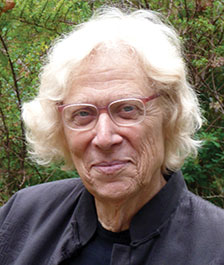 Jeremy Jackson is scientific director of the Global Coral Reef Monitoring Network; senior advisor on coral reefs for the International Union for the Conservation of Nature; and emeritus professor, Scripps Institution of Oceanography of the University of California, San Diego.
Jeremy Jackson is scientific director of the Global Coral Reef Monitoring Network; senior advisor on coral reefs for the International Union for the Conservation of Nature; and emeritus professor, Scripps Institution of Oceanography of the University of California, San Diego.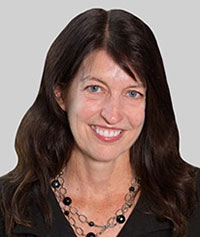 Karen Kemerait is a partner at Fox Rothschild LLP, one of the leading law firms in the Southeast. Kemerait is an expert in the administrative law and regulatory regimes surrounding water and land use, wastewater, utilities, and zoning.
Karen Kemerait is a partner at Fox Rothschild LLP, one of the leading law firms in the Southeast. Kemerait is an expert in the administrative law and regulatory regimes surrounding water and land use, wastewater, utilities, and zoning.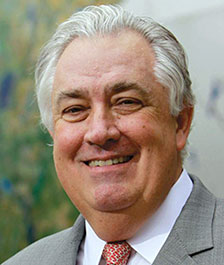 Emlyn Koster is former director of the North Carolina Museum of Natural Sciences and adjunct professor in the Department of Marine, Earth and Atmospheric Sciences at North Carolina State University. A vocal advocate for the role of museums in addressing issues arising from humanity’s adverse impacts on the Earth System, Koster is the founding chair of the International Council of Museums’ working group on the Anthropocene.
Emlyn Koster is former director of the North Carolina Museum of Natural Sciences and adjunct professor in the Department of Marine, Earth and Atmospheric Sciences at North Carolina State University. A vocal advocate for the role of museums in addressing issues arising from humanity’s adverse impacts on the Earth System, Koster is the founding chair of the International Council of Museums’ working group on the Anthropocene.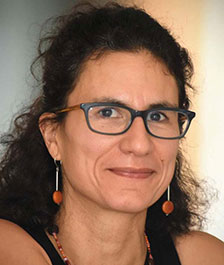 Claudia Leal is associate professor of environmental history at Universidad de los Andes in Bogotá. She has helped develop the field of Latin American environmental history as copresident of the Latin American and Caribbean Society for Environmental History (SOLCHA) and as coeditor (with John Soluri and José Augusto Pádua) of A Living Past, Environmental Histories of Modern Latin America (Berghahn Books, 2018).
Claudia Leal is associate professor of environmental history at Universidad de los Andes in Bogotá. She has helped develop the field of Latin American environmental history as copresident of the Latin American and Caribbean Society for Environmental History (SOLCHA) and as coeditor (with John Soluri and José Augusto Pádua) of A Living Past, Environmental Histories of Modern Latin America (Berghahn Books, 2018).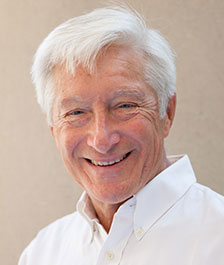 Tom Linden is Glaxo Wellcome Distinguished Professor of Medical Journalism at the University of North Carolina School of Media and Journalism. Originally trained as a physician, Dr. Linden has also worked for more than forty years as a science and medical reporter, broadcaster, and producer.
Tom Linden is Glaxo Wellcome Distinguished Professor of Medical Journalism at the University of North Carolina School of Media and Journalism. Originally trained as a physician, Dr. Linden has also worked for more than forty years as a science and medical reporter, broadcaster, and producer. Andy Mink is vice president for education programs at the National Humanities Center where he designs and leads professional development programs for K–12 and university educators. He also currently serves on the executive boards of the North Carolina Council for Social Studies and the North Carolina Outward Bound School, and on the board of trustees for the National Council for History Education.
Andy Mink is vice president for education programs at the National Humanities Center where he designs and leads professional development programs for K–12 and university educators. He also currently serves on the executive boards of the North Carolina Council for Social Studies and the North Carolina Outward Bound School, and on the board of trustees for the National Council for History Education.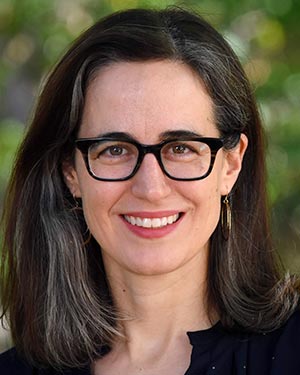 Tania Munz is vice president for scholarly programs at the National Humanities Center. Trained as a historian of science at Princeton, she has published widely on the history of biology, animal behavior studies, and science and film. Prior to arriving at the Center in 2017, she served as vice president for research and scholarship at the Linda Hall Library for Science, Technology and Engineering.
Tania Munz is vice president for scholarly programs at the National Humanities Center. Trained as a historian of science at Princeton, she has published widely on the history of biology, animal behavior studies, and science and film. Prior to arriving at the Center in 2017, she served as vice president for research and scholarship at the Linda Hall Library for Science, Technology and Engineering.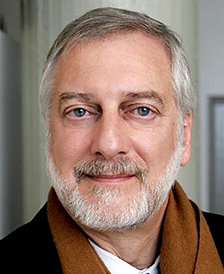 Robert D. Newman is president and director of the National Humanities Center. He was previously Dean of the College of Humanities at the University of Utah where he helped establish the first nation’s first graduate program in environmental humanities. A literary scholar by training, Dr. Newman also has held faculty appointments at the University of South Carolina, where he was chair of the Department of English, Texas A&M University, and the College of William and Mary.
Robert D. Newman is president and director of the National Humanities Center. He was previously Dean of the College of Humanities at the University of Utah where he helped establish the first nation’s first graduate program in environmental humanities. A literary scholar by training, Dr. Newman also has held faculty appointments at the University of South Carolina, where he was chair of the Department of English, Texas A&M University, and the College of William and Mary.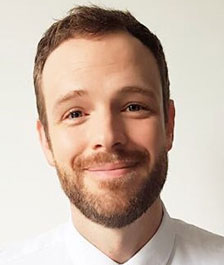 Miles Powell is assistant professor of environmental history at Nanyang Technological University in Singapore, where his current research involves the global history of human interaction with sharks in the twentieth century.
Miles Powell is assistant professor of environmental history at Nanyang Technological University in Singapore, where his current research involves the global history of human interaction with sharks in the twentieth century.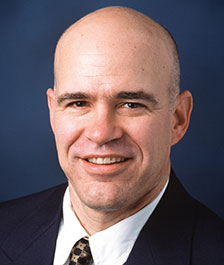 Daniel D. Richter is professor of soils and forest ecology at Duke University where his research explores how humanity is transforming Earth’s soils from natural to human-natural systems, specifically how land-uses alter soil processes and properties on time scales of decades, centuries, and millennia.
Daniel D. Richter is professor of soils and forest ecology at Duke University where his research explores how humanity is transforming Earth’s soils from natural to human-natural systems, specifically how land-uses alter soil processes and properties on time scales of decades, centuries, and millennia.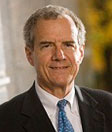 Stephen E. Roady holds a joint appointment as professor of the practice of law at Duke Law School and as a faculty fellow in the Nicholas Institute for Environmental Policy Solutions. Prior to his appointment, he spent more than three decades as a legal advocate working to protect air and water quality, mountains and streams, and ocean and coastal resources, most recently managing the oceans program at Earthjustice.
Stephen E. Roady holds a joint appointment as professor of the practice of law at Duke Law School and as a faculty fellow in the Nicholas Institute for Environmental Policy Solutions. Prior to his appointment, he spent more than three decades as a legal advocate working to protect air and water quality, mountains and streams, and ocean and coastal resources, most recently managing the oceans program at Earthjustice. Kira Alexandra Rose is a postdoctoral fellow in the School of Humanities at Nanyang Technological University in Singapore. A scholar of English literature, her recent research investigates shifting representations of water in contemporary transnational literature, art, and media.
Kira Alexandra Rose is a postdoctoral fellow in the School of Humanities at Nanyang Technological University in Singapore. A scholar of English literature, her recent research investigates shifting representations of water in contemporary transnational literature, art, and media.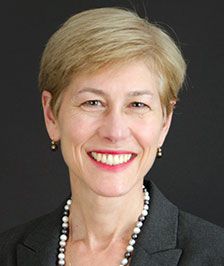 Deborah Ross is a former member of the North Carolina House of Representatives and practicing attorney whose work as both a politician and legal counsel has focused on economic development, renewable energy, and infrastructure needs of communities, businesses and government.
Deborah Ross is a former member of the North Carolina House of Representatives and practicing attorney whose work as both a politician and legal counsel has focused on economic development, renewable energy, and infrastructure needs of communities, businesses and government.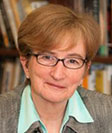 Ellen Spears is an associate professor in the American studies department at the University of Alabama, where her scholarship is focused on nineteenth- and twentieth-century U.S. environmental and civil rights history; competing scientific, medical and legal claims in environmental public health; and ethnographic and oral documentary studies of race, class, gender, and place in the U.S. South.
Ellen Spears is an associate professor in the American studies department at the University of Alabama, where her scholarship is focused on nineteenth- and twentieth-century U.S. environmental and civil rights history; competing scientific, medical and legal claims in environmental public health; and ethnographic and oral documentary studies of race, class, gender, and place in the U.S. South.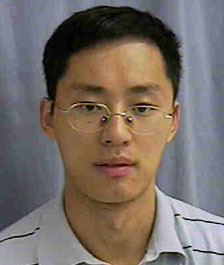 Shaojing Sun is associate professor of journalism and communication at Fudan University where his research focuses on message and media effects, health communication, natural disasters, science and risk communication, and research methods.
Shaojing Sun is associate professor of journalism and communication at Fudan University where his research focuses on message and media effects, health communication, natural disasters, science and risk communication, and research methods.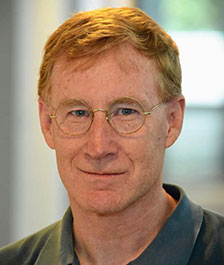 Joseph Taylor, professor of history at Simon Fraser University, has spent his career studying the history of western North America, focusing particularly on Pacific salmon fisheries, the history of modern rock climbing, changing ideas about the American West and the history of fisheries, fisheries science, and fisheries management on a global scale.
Joseph Taylor, professor of history at Simon Fraser University, has spent his career studying the history of western North America, focusing particularly on Pacific salmon fisheries, the history of modern rock climbing, changing ideas about the American West and the history of fisheries, fisheries science, and fisheries management on a global scale.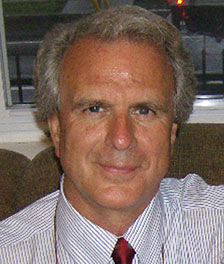 Randall Tolpinrud is a cofounder and president of Pax Natura Foundation which promotes “peace with nature” by empowering local communities to preserve the environment while stimulating local economic growth. He is one of the world’s leading authorities on ethical carbon offset practices.
Randall Tolpinrud is a cofounder and president of Pax Natura Foundation which promotes “peace with nature” by empowering local communities to preserve the environment while stimulating local economic growth. He is one of the world’s leading authorities on ethical carbon offset practices.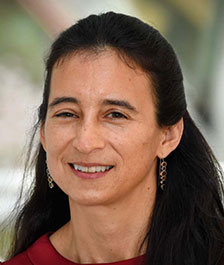 Julie Velásquez Runk is associate professor of anthropology at the University of Georgia. Grounded in the fields of political ecology, science and technology studies, and human geography, her research explores how people use and manage their landscapes, how that relates to science, conservation, indigenous knowledge, and policy, and how people cope with variability and change.
Julie Velásquez Runk is associate professor of anthropology at the University of Georgia. Grounded in the fields of political ecology, science and technology studies, and human geography, her research explores how people use and manage their landscapes, how that relates to science, conservation, indigenous knowledge, and policy, and how people cope with variability and change.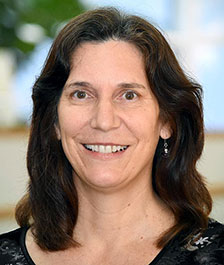 Robin Visser is associate professor of Asian studies at the University of North Carolina at Chapel Hill where her research focuses on modern Chinese literatures, visual culture, urban studies, and environmental studies. A Fellow at the National Humanities Center in 2017–18, her current research analyzes relational ontologies within Sinophone eco-literature.
Robin Visser is associate professor of Asian studies at the University of North Carolina at Chapel Hill where her research focuses on modern Chinese literatures, visual culture, urban studies, and environmental studies. A Fellow at the National Humanities Center in 2017–18, her current research analyzes relational ontologies within Sinophone eco-literature.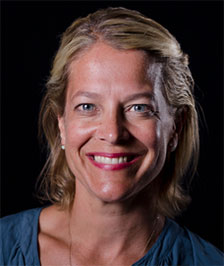 Bethany Wiggin is the founding director of the Penn Program in Environmental Humanities at the University of Pennsylvania where she also serves as associate professor of German. Wiggin is a prolific scholar whose work has drawn wide praise both within and beyond the academy as it has been featured on the PBS Newshour, CBS Evening News, CNN, The Daily Show with Trevor Noah, Vice, Die Tagesschau, The Washington Post, The New York Times, Die Süddeutsche Zeitung, Le Monde, and Science Friday.
Bethany Wiggin is the founding director of the Penn Program in Environmental Humanities at the University of Pennsylvania where she also serves as associate professor of German. Wiggin is a prolific scholar whose work has drawn wide praise both within and beyond the academy as it has been featured on the PBS Newshour, CBS Evening News, CNN, The Daily Show with Trevor Noah, Vice, Die Tagesschau, The Washington Post, The New York Times, Die Süddeutsche Zeitung, Le Monde, and Science Friday.
